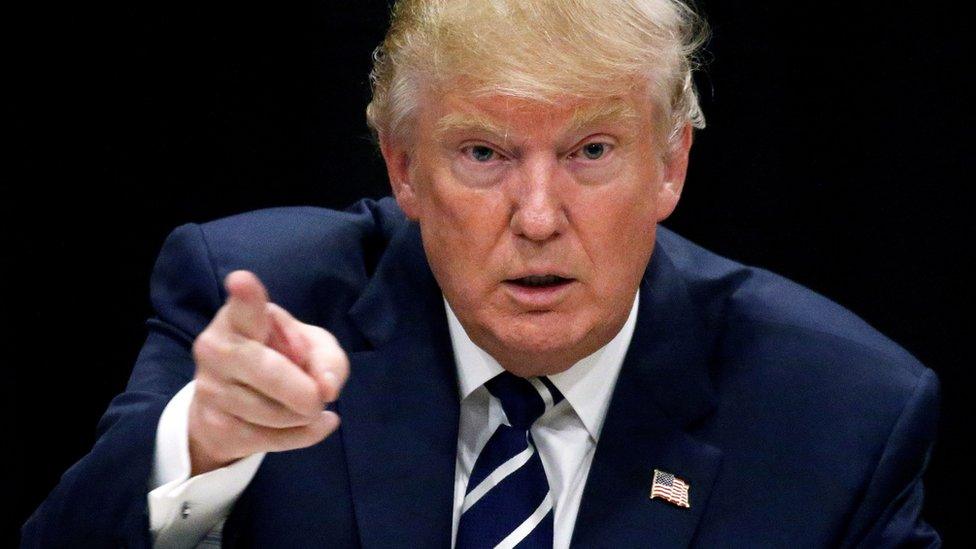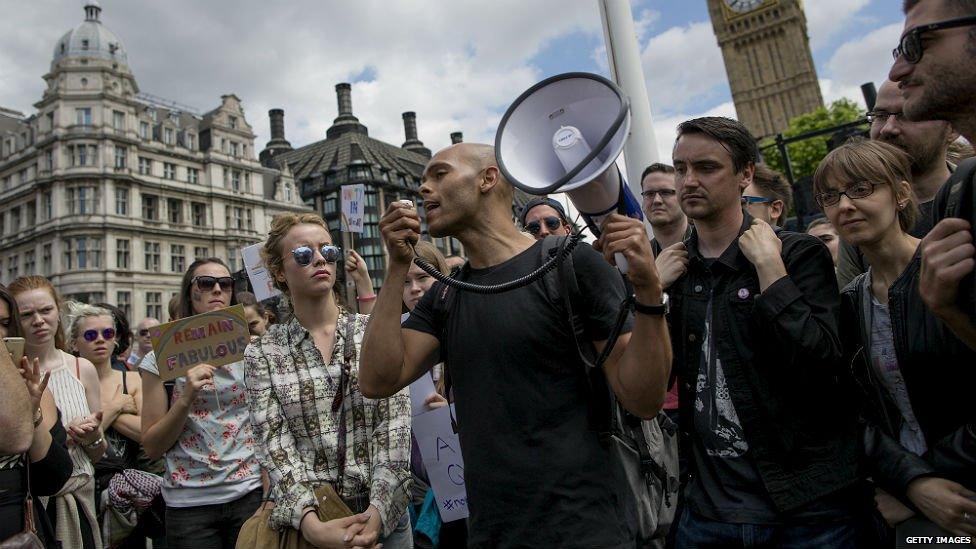Teen Vogue surprise! Teenage girls care about politics
- Published

It's hard to decide whether people are more surprised that Teen Vogue published a piece on politics, or that teenage girls might have read it.
US Teen Vogue's target audience is the same group of people who are frequently dismissed for having zero attention span or being obsessed with selfies.
But these same people tend to be better educated than their grandparents, external, while facing challenging job prospects.
And as a group, they are more racially and socially diverse.
So when Lauren Doca's Donald Trump article went live, the biggest surprise seemed to come not from the regular Teen Vogue audience, but from people who possibly haven't read it that much in a while.
Doca's article isn't the first political piece to feature in Teen Vogue.
In the last few weeks alone, reporters have covered the young population in US prisons, the North Dakota pipeline protest and got Zendaya Coleman to interview Michelle Obama.
Teen Vogue shared a link to its video of young people putting questions to Donald Trump., external
A number of commentators suggested that politics and make-up tips were incompatible in one magazine.
In criticising Donald Trump, Teen Vogue has aligned itself with the more liberal end of US politics.
The Republican president-elect has attacked reporters at the New York Times and other media outlets, saying their coverage is biased against him.
Research since the election suggests he actually lost the youth vote, external to Hillary Clinton.
His Democratic rival scored particularly highly with demographics such as young unmarried women and young people from ethnic minority groups.
This is not to say that Donald Trump didn't have a significant young following, especially among young white men.
So although Teen Vogue may not reflect the opinions of every teenage reader, its liberal leanings do correlate with the opinions of the majority of its target audience.
That many young people are politically engaged should come as no surprise to people in the UK.
More than 100,000 teenagers aged 16 and 17 registered to vote after being given the chance to do so for the first time during the Scottish referendum two years ago.

A lot of young people were motivated to vote by Brexit
There were a lot of conflicting statistics around young people's voting habits during this year's EU referendum, but a report by the London School of Economics revealed that 64% of young people registered to vote, did actually vote.
That's the highest turnout in two decades.
Young people can also have a massive impact on outcomes, with that same study suggesting that if 16 and 17-year-olds had been allowed to vote, it would have been enough to swing a "remain" result.
Supporters of the article say people are not only undermining the age of Teen Vogue readers but also their gender.
Regardless of gender, many teenagers are disillusioned with party politics and instead express their views through social media, direct action and other forms of campaign.
And one of the biggest themes which has come out of the US election and Brexit results is that young people are looking for change.
Find us on Instagram at BBCNewsbeat, external and follow us on Snapchat, search for bbc_newsbeat